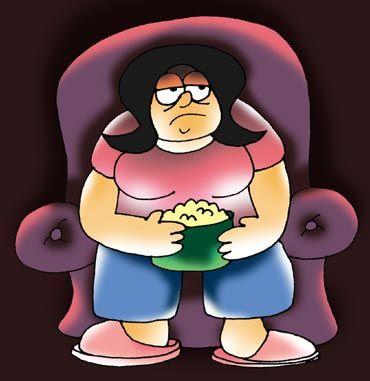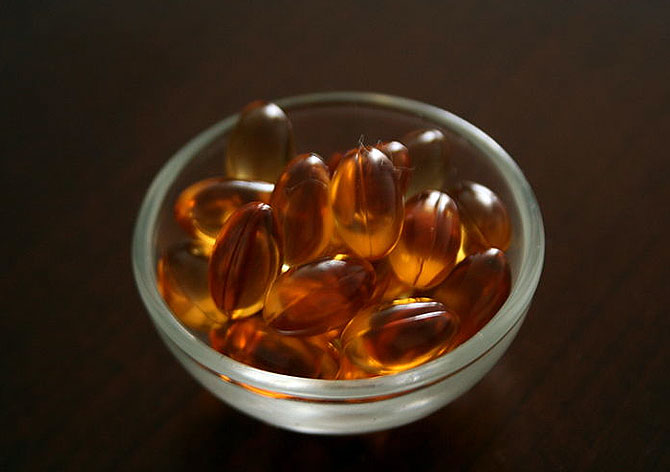 | « Back to article | Print this article |
Crossing your legs can hurt your heart
Here's a round-up of the latest findings across an array of pressing health issues.
Did you know sitting with your legs crossed can hurt your heart?
Or that doodling is good for your brain? Read on to learn more.
Sitting with your legs crossed can up increase heart risk
A new study has found that sitting with legs crossed at the knee can bump up blood pressure.
Leg crossing increased systolic blood pressure nearly 7 percent and diastolic by 2 percent, ABC News reported.
Stephen T. Sinatra, MD, FACC, a Connecticut-based cardiologist and author of The Great Cholesterol Myth said that frequent crossing of the legs also puts stress on the hip joints and can cause pooling of blood in the legs when the veins are compressed. This could predispose you to inflammation of the veins of the lower legs and possibly a blood clot, he said.
Dr. Sinatra advises to avoid crossing your legs for longer than 10 to 15 minutes, and to get up and walk around every half hour or so. The study is published in the journal Blood Pressure Monitoring.
Marriage quality may influence heart disease risk
A new study has found that if a couple feel ambivalent towards their partner they are at an elevated heart disease risk.
According to the study’s lead author by Bert Uchino, a psychologist at the University of Utah, the health of both spouses “is interdependent- it isn’t what one says or does; it’s what both do within the relationship that matters” when it comes to heart health, CBS News reported.
The scientists recruited 136 long-married couples to see what effect those feelings might have on the heart itself over time, the scientists recruited 136 long-married couples.
It was found that 30 percent of individuals were primarily viewed by their spouses as “positive” and 70 percent were primarily viewed with an even mix of positive and negative feelings, which the researchers termed ambivalent.
Cholesterol and blood sugar levels were also measured and lifestyle factors like exercise and smoking were taken into account to further evaluate heart risk.
The researchers found that among couples where both spouses felt ambivalent toward the other, there was significantly more calcium buildup in the arteries. And only in those couples was the increased heart risk detected.
The researchers said that feeling both positively and negatively toward a spouse may affect heart disease risk in large part as a result of the level of support that spouses offer based on relationship quality. The study was published in the journal Psychological Science.
Women more prone to heart attacks than men
A new study has revealed that there are some significant differences between men’s and women’s hearts, and these differences may put women at a much higher risk for heart woes than their male counterparts.
The research by Dr. Janine Austin Clayton, director of the Office of Research on Women’s Health at the National Institutes of Health, revealed a dangerous difference in the symptoms men and women experience during a heart, CBS News reported.
The hallmark chest pain is more likely to be felt by men than women, and the latter may experience less obvious symptoms like trouble sleeping, nausea, indigestion, fatigue and jaw pain.
The study showed that men and women have substantive, clinically important differences in their bodies in all of health, from how their organs are structured to how they function.
One major difference is how the blood vessels of women with heart disease look compared to those of men.
Coronary heart disease is caused by plaque- made by cholesterol, fat and other substances- building up in the arteries that supply oxygen-rich blood to the heart muscle.
Clayton explained that in women, this buildup lines the walls of the blood vessels evenly- like the inside of a straw getting more narrow because the wall is thickening.
However, in men, this plaque buildup can be more concentrated in one area, as if a section of the straw is pinched. The study was published in the journal of the American Medical Association.
How to lower your risk for colon cancer
Researchers have revealed few ways to help reduce and prevent risk of colorectal cancer -- cancer of the colon or rectum affecting both men and women- which is the second leading cause of cancer deaths in the United States.
“Before someone gets colon cancer, there is a precancerous polyp that can be removed”, Steven Itzkowitz, MD, Director of the Gastroenterology Fellowship Program at the Icahn School of Medicine at Mount Sinai, said. “Because polyps do not usually cause symptoms, it is important to go for screening even if you feel perfectly well”.
In addition to screening, diet and lifestyle changes can help reduce your risk for colorectal cancer.
Experts offer few ways to help lower your chances. It has been advised that quitting smoking can help. Not only can smoking predispose a person to colon cancer, but it can also cause many others. Consider joining a smoking cessation group or ask your doctor for assistance.
Keep the weight down. Maintaining a healthy weight is critical.
Incorporate simple lifestyle changes into your day: eat breakfast every morning, bring lunch to work, and order an appetizer instead of an entrée when eating out.
The experts revealed that one can lower their risk by increasing their activity level. Completing 150 to 300 minutes of physical activity a week, which is easily achieved in 20-30 minute increments daily, can help.
Increasing dietary fiber by having more fruits, vegetables and whole grains in your diet can help move waste material out of the body more efficiently.
Swap out white rice, boxed mashed potatoes and pasta for brown rice, quinoa, faro or wheat berries.
It was suggested that limiting alcohol consumption and lowering red meat intake can also help cut the risk of colorectal cancer.
Overweight? You're eating too much
Brian Wansink from CornellUniversity, in his book, Mindless Eating has written that even people of normal weight underestimate their food intake by about 20 per cent.
He said that people, who are overweight, can underestimate what they eat by more than 50 per cent, Stuff.co.nz reported.
Wasink has conducted many experiments showing that people can easily be fooled into consuming more than they believe they have eaten.
He said that there are many factors at play which conspire against us, asserting that “portion creep” is one of them.
“Portion creep” is a term that describes the upsizing of portion sizes of food over the years.
However, research shows that there can be huge variation in what a portion is.
How to lose weight and keep it off
Every overweight person would agree that losing weight is an uphill battle and maintaining the weight loss is a completely different story.
But with the right tools and advice, shedding the extra kilos and keeping them off will make your life a lot easier.
According to Grandparents.com, seeking the help of a dietitian will help you stay focused on your weight loss goals and infusing small changes in your diet will give you better results than trying to make your diet healthy overnight.
It is also advisable to avoid thinking of certain foods as “off-limits”, switching from a 12-inch plate to a 10-inch dinner plate and consuming food-rich in protein, like Greek yogurt, cottage cheese, nuts and seeds, chicken, fish, beans, with every meal.
Lastly, to keep the weight off have a meal plan for each day of the week.
How doodling helps brain functions revealed
If you have often resorted to doodling while talking on the phone then you might be an intellectual or a hardcore creative person.
Sunni Brown, the author of The Doodle Revolution said that the information density is very high in those exact moments, making this activity “really important”, the New York Post reported.
She said that every American president from Washington to Nixon doodled and one would find doodles in a notebook or a journal from any intellectual or hard-core creative.
Brown said that human brains see words as images and doodling unites different neural pathways in the brain, opening the person to greater insights, better information retention and higher levels of concentration.
She claimed that doodling keeps the brain occupied and focused, rather than disengaging or distracting it and it is our innate language that must be harnessed in schools and in the boardroom.
The author, who plans to elevate the doodle as a viable tool for creativity and productivity, said that one day everybody will look back and marvel at a time when they used to rely almost exclusively on text, numbers and verbal language.
Brown added that her mission is to revolutionize the way people think and learn by incorporating visual learning in the form of doodling and she wants to push adults to start doodling and to hone the skills of people who already doodle.
Carbohydrates rich diet could up dementia risk
Researchers have linked carbohydrate calorie-rich diets to a greater risk for brain shrinkage, dementia and Alzheimer’s disease, impaired cognition, and other disorders.
Dr David Perlmutter, a board-certified neurologist and fellow of the AmericanCollege of Nutrition, has just been appointed Editor-in-Chief of a new peer-reviewed journal, Brain and Gut, which will debut in summer 2014.
The journal will publish leading-edge research dedicated to exploring a whole systems approach to health and disease from the intimate relationship between the brain and the digestive systems.
Dr Perlmutter said that they live with this notion that a calorie is a calorie, but at least in terms of brain health, and he believes for the rest of the body as well, there are very big differences between our sources of calories in terms of the impact on their health.
He said that carbohydrate calories, which elevate blood glucose, are dramatically more detrimental to human physiology, and specifically to human health, than are calories derived from healthful sources of fat.
The article has been published free on the Alternative and Complementary Therapies website.
Selenium and vitamin E supplements can up prostate cancer risk
Researchers have found that high-dose supplementation with both the trace element selenium and vitamin E increase the risk of high-grade prostate cancer.
These findings are based on data from the Selenium and Vitamin E Cancer Prevention Trial, or SELECT, a rigorously executed, randomized and placebo-controlled trial conducted by the SWOG cancer research cooperative group that involved more than 35,000 men.
The study sought to determine whether taking high-dose vitamin E (400 IU/day) and/or selenium (200 mcg/day) supplements could protect men from prostate cancer.
The trial, which began in 2001 and was designed to last 12 years, stopped early, in 2008, because it found no protective effect from selenium and there was a suggestion that vitamin E increased risk.
While use of the study supplements stopped, men were still followed and after an additional two years the men who took
vitamin E had a statistically significant 17 percent increased risk of prostate cancer.
The study has been published in Journal of the National Cancer Institute.








